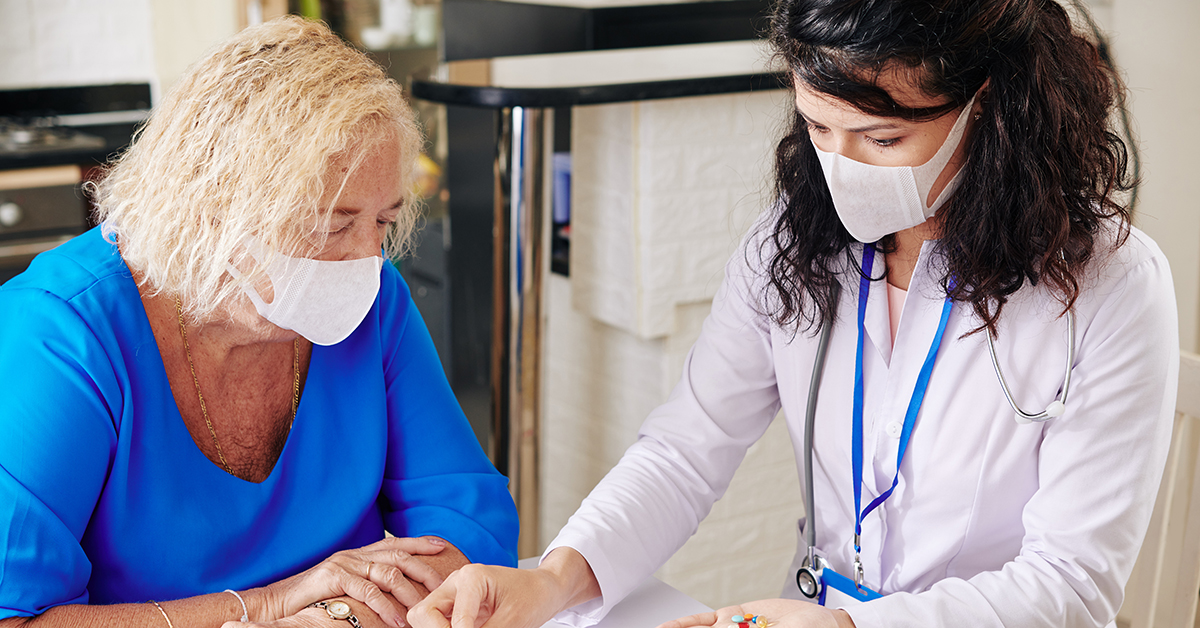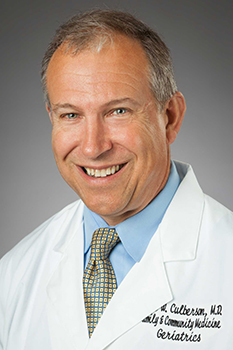Tips Include Teaching Children Healthy Habits That Can Last a Lifetime

At its core, aging is more than just flipping the pages on a calendar or adding an extra candle to the cake each birthday. It’s the gradual breaking down of the body’s molecular features that are important to our skin and other organs, and the wearing out over time of mechanical features such as tendons, bones and muscles.
“That's called normal aging,” John Culberson, M.D., said. “Of course, most people age typically, which introduces other factors such as mechanical difficulties.”

Culberson, director of clinical geriatric programs for the Garrison Institute on Aging at the Texas Tech University Health Sciences Center (TTUHSC) School of Medicine, said mechanical difficulties are those that tend to build over time. Maybe a person played a little bit too much football or skied too much when they were younger and injured a knee. They may eventually start to walk with a limp and that throws their back off, leading to imperfect mechanics that become more noticeable with age.
“If you live in a city, you might breathe in a little bit too much ozone, and we all eat food that's processed,” Culberson said. “There's a lot of factors in our everyday life that actually slowly but surely tend to cause changes in our intricate chemical and mechanical structure that results in what we know is aging.”
Though there is no fountain of youth, Culberson offered the following tips for practicing healthy aging.
- Avoid processed foods. “Humans used to have to grow or hunt their own food,” Culberson said. “That took a lot of effort and he couldn't sit in a chair with a remote and do that. The food also didn't have a lot of unusual preservatives and dyes, so the more natural you can stay with your diet, the better.”
- Avoid the use, and misuse of alcohol, tobacco and other drugs. “Those are not things the human body is designed to withstand over time,” Culberson said.
- Stay as physically active as possible. Even if it’s just taking a daily walk, physical exercise is good for overall health.
- Remain socially active. “Humans are social animals,” Culberson said. “Isolation is not normal for humans and it leads to a lot of other issues, which make healthy aging more difficult. Some people like to be alone; they like the peace and quiet. There's nothing wrong with that, but you're missing out on a lot of behavioral health if you’re isolating all the time.”
- Exercise your brain. Do activities that stimulate the brain and the imagination. Reading is better than watching television, and puzzles, games and brainteasers also help keep the brain active. Whether one enjoys tinkering with cars or painting landscapes, keeping the mind and imagination active is beneficial to healthy aging.
Culberson suggested teaching children to practice these healthy aging tips as early as possible because there is mounting evidence that people who age successfully were quite active as children.
“The pediatricians have been really emphasizing the fact that childhood activity and fitness carries on as we get older,” Culberson said. “I think it's more than just habit; it's really how your muscles and organs learn how to work during the development process, so I think emphasizing fitness, exercise and social interactions in the pediatric population is important.”
